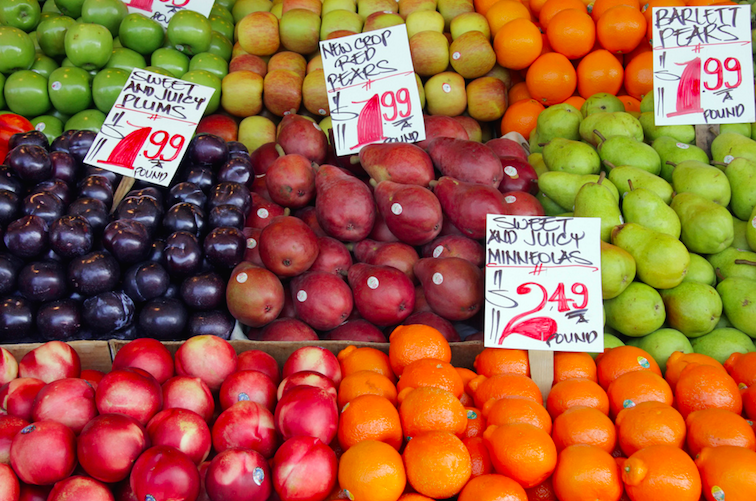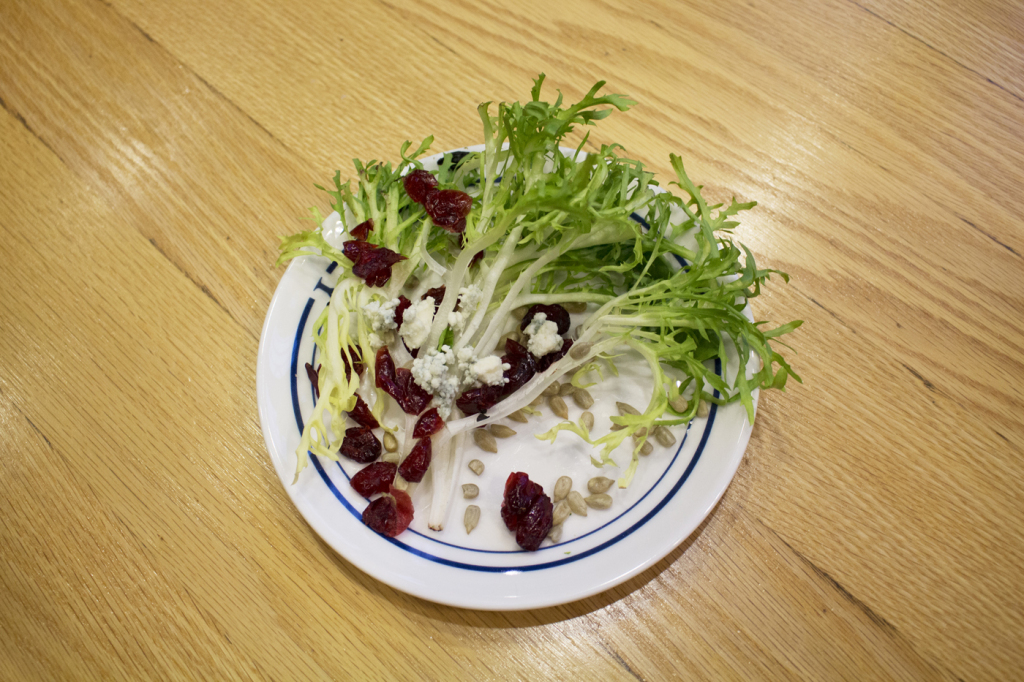After two months of surviving on nothing but hummus, salad and peanut butter, I learned that college was not an easy place to become a vegan. Although I rejoiced at the fact that I was able to indulge in ice cream again once I reclaimed my much less strict pescetarian diet, I do regret not being able to be on a vegan diet for longer.
There are a number of pros and cons when it comes to going vegan in college. If you are considering taking this kale encrusted plunge, it is definitely important to weigh both sides of the decision.
The Good
You Will Have More Energy
When going vegan, you’ll find that your energy levels will sky-rocket. This happens because you are feeding your body effective fuel, rather than eating unhealthy foods that ultimately slow you down. This is great when it comes to attentiveness in class, getting the most out of your workouts and just making it through the high demands of your busy day.
Physical Benefits
It has been proven that dairy and red meat are often the culprits behind bad breath and lousy body odor. Keeping these things out of your diet keeps you smelling a whole lot fresher.
A diet rich in veggies and nuts have been known to give consumers healthier skin, meaning less breakouts, even when you are crazy stressed. Vegan diets are also linked to having stronger hair and nails, ultimately leading to a healthier overall appearance.
Immediate Health Benefits
Struggles with weight become less of an issue for vegan dieters. Several studies have shown that diets without meat and animal products lead to lower Body Mass Indexes.
Vegan diets are also known to relieve symptoms of migraines, PMS and allergies. A reduction of these symptoms can be a godsend for many college students who are consistently slowed down by these health issues.
Long-Term Health Benefits

Photo courtesy of roycebair.com
There are a lot of major health benefits that come along with being vegan. Eliminating dairy from your diet has been proven to have a strong connection to alleviating symptoms and contraction of certain bone diseases, like arthritis and osteoporosis.
Following a vegan diet has also been known to help reduce the risk of breast and colon cancers. When eating a diet that is rich in whole grains, fruits and veggies, levels of cholesterol and blood pressure decrease and cardiovascular health is improved drastically.
Although most of these health benefits seem like they won’t affect you until years down the road, starting to lead a healthy life now is going to help you later in life.
The Bad
You Will Feel Left Out

Photo by Jenna Rosen
A majority of 20-somethings aren’t entirely concerned about keeping up with a healthy diet at all times. This is especially true in college like when the late night drunchies come into play. Nibbling on a carrot stick while your friends are chowing down on Pokey Sticks can be a little bit disheartening and make you rethink your dieting decisions.
A lot of times, your diet can also restrict you from attending certain social gatherings. Going to a pizza joint or ice cream shop might seem like torture to you if you know you won’t be able to eat any of it. Since veganism is pretty rare among college students, there will definitely be times that you will feel like the odd one out among your peers.
It Can Be Hard To Find Food

Photo by Caroline Kim
If you have a school meal plan or a meal plan through your sorority or fraternity, finding vegan meal options can be nearly impossible. When it comes to the dining hall, it is pretty much guaranteed that your choices are limited to salad, salad, and even more salad. I love salads as much as the next healthy eater, but eating them 7 days a week gets pretty old.
If you don’t have a meal plan, cooking vegan-friendly meals in your dorm room can be pretty difficult. First of all, it is hard to find fruits and veggies on campus, let alone keep them in your dorm without them going bad; so ingredients are difficult to consistently have on hand. Even if you do have readily available produce, dorm kitchens usually aren’t too spacious or efficient.
Protein is Scarce

Photo by Katie Walsh
The typical response that a vegan gets when they reveal their dietary habits is “but where do you get your protein?” Even though this question is unbelievably annoying, it is a valid one.
Non-vegans get most of their protein from animal products, so when vegans nix the most common forms of protein from their diets, it can be hard to replace. Sure, leafy greens provide a couple grams here and there and soy protein is an acceptable substitute, but there are very little replacements that rival the amount of protein found in things like chicken, steak, and other animal products.
Since protein is a vital part of a well-balanced diet, it is not very healthy to skip out on it or drastically decline your intake of it.
In the end, becoming a vegan can either be the best decision you’ve ever made or the hardest few months of your life. Although I am a huge supporter of the dietary choice, college may be a difficult place to do it. However, if being a vegan is truly something that you want to do, it is definitely possible with the right amount of dedication and desire.


